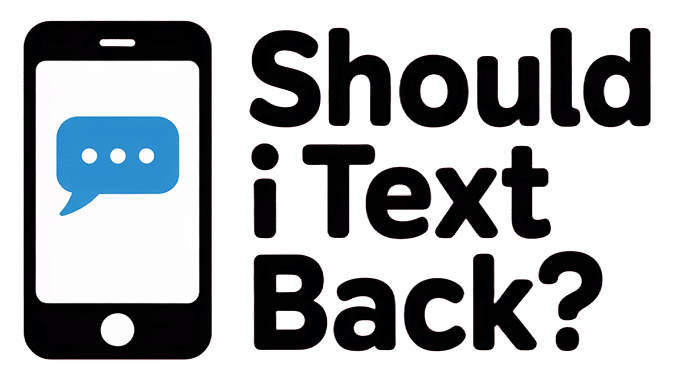Why Does My Friend Use so Many One-Word Responses?

So, your friend’s one-word replies might not mean they’re mad at you or bored! They could just be busy, tired, or prefer keeping things simple. Sometimes, they might be overwhelmed or anxious, too. Instead of letting those short answers get you down, try throwing in some open-ended questions. It could spark a better convo! And hey, who knows? You might discover what’s really going on under that quick response!
Understanding One-Word Responses

When you think about it, one-word responses can be pretty fascinating! They often pop up without much thought, like when someone asks, “How was school?” and you just say “Fine.” That’s your brain working on autopilot!
These quick replies are like mental shortcuts, letting you communicate without a heavy load. But hey, while they keep things simple, they can also leave a lot unsaid. Cognitive psychology examines how these shortcuts can influence the way we interpret and respond to questions.
Next time you find yourself answering with just a word, consider why. Is it easier? Are you feeling a bit shy?
And if you want to spice up your chats, try adding a little more! A “good” or “great” can open the door to a deeper conversation. Go ahead, give it a shot!
Emotional Signals Behind Brief Replies
Sometimes, those quick one-word replies hide a lot more than you might think! When your friend shoots back with “fine” or “okay,” it could mean they’re busy or even just tired.
Instead of assuming they don’t care, try to read the room! Pay attention to how often they respond this way; it might show how they’re feeling.
If the vibe feels off, don’t be afraid to ask open-ended questions to dig a little deeper. Maybe they need a bit of extra space or just a friendly nudge.
Personality Traits and Communication Styles
You mightn’t realize it, but your personality plays a big role in how you communicate, especially when it comes to those quick one-word replies.
If you’re an introvert, you might prefer keeping things short and sweet. After all, who wants to write a novel when a simple “yep” will do?
Some folks learn this minimalist style from their surroundings. If everyone around them chats briefly, they probably will too.
And hey, it’s not always a sign of rudeness! Sometimes, it’s just their way of saying, “I’m here, but let’s keep it simple.”
If you want deeper chats, try nudging them with a follow-up question. It might just open up a whole new world of conversation!
The Impact on Conversation Dynamics
While one-word replies might seem harmless, they can really shake up the flow of a conversation. You’re left carrying the whole chat, and that can feel like a workout!
When your friend responds with just “Okay” or “Sure,” it’s tough to keep things going. Conversations can feel stilted, and you might even feel a bit ignored. You want connection, not a rapid-fire exchange that feels like a game of tennis!
If you notice this happening, try asking open-ended questions to spark more engagement. Humor can help, too—who doesn’t love a good laugh?
Psychological Factors Influencing Communication

When you think about why someone might fire off a one-word response, it’s often more than just them being lazy or uninterested.
Sometimes, they might struggle to express their thoughts or feelings due to anxiety or even a brain injury. Imagine trying to chat while juggling a dozen thoughts—it’s tough!
Plus, some folks just prefer short answers; they’re like the introverted turtles of conversation.
If your friend seems distant, they might just be overwhelmed or unsure how to engage. You can help by asking open-ended questions or giving them a nudge to share more.
Social Contexts and Situational Influences
Often, one-word responses pop up in specific social contexts and situations that can really shape how we communicate.
If you’ve ever texted a friend during a busy day, you know how tempting it’s to send a quick “k” instead of a full reply. That’s just texting culture for you!
Plus, if someone’s feeling shy or anxious, they might stick to short replies to avoid awkwardness. Stress or distractions can also zap your energy for longer chats.
Sometimes, it’s just about keeping things light and fast, especially in group chats. If you notice your friend doing this, don’t take it personally!
Maybe try asking them about their day to spark a longer conversation. It might just do the trick!
Strategies for Improving Communication
Improving communication isn’t just about saying the right words; it’s like tuning a musical instrument to create that perfect harmony!
First off, listen actively. Let your friend finish their thoughts without jumping in. It’s like waiting for the last note of a song! Show you’re engaged by nodding and making eye contact.
Next, keep your messages clear and simple. No one likes a confusing riddle! Stick to one idea at a time to avoid overwhelming them.
And don’t forget to sprinkle in some empathy—acknowledge how they feel.
Finally, practice makes perfect. Set small goals to boost your skills and ask for feedback.
With these tips, you’ll be jamming in no time!
Recognizing Patterns and Setting Boundaries
You know that feeling when you’re chatting with someone, and their replies are just a string of “yeah,” “no,” or “okay”? It can feel pretty frustrating, right?
Recognizing that pattern is key. If your friend’s one-word replies seem more frequent, they might be distracted or just not that into the convo. It’s like a signal saying, “I’m not ready to dive deeper!”
If this happens a lot, it’s time to set some boundaries. You deserve conversations that energize you, not drain you. So, try saying something like, “Hey, I’d love to hear your thoughts!”
If they’re still not engaging, consider taking a step back. Remember, it’s okay to prioritize your emotional health over superficial chats!
Frequently Asked Questions
Are One-Word Responses Always a Sign of Disinterest?
One-word responses aren’t always a sign of disinterest. They can reflect efficient thinking, emotional regulation, or conversational context. Instead of assuming detachment, consider the situation and your friend’s communication style before jumping to conclusions.
How Can I Tell if My Friend Is Upset?
When it rains, it pours. If your friend’s communication becomes brief, they withdraw from social events, or seem emotionally distant, it’s likely they’re upset. Pay attention to these signs and reach out to them.
What if My Friend Communicates Better in Person?
If your friend communicates better in person, consider setting up a face-to-face meeting. You’ll likely experience richer interactions, clearer understanding, and a stronger connection, making it easier to discuss important topics and feelings.
Can Cultural Differences Affect Texting Styles?
Cultural differences shape your texting style, influencing how you express thoughts. While some prefer brevity, others embrace elaboration. Understanding these nuances helps you navigate conversations, avoiding miscommunication and enhancing connections with diverse backgrounds.
Should I Confront My Friend About Their Communication Habits?
You should consider confronting your friend about their communication habits, but approach it gently. Express your feelings and concerns without blaming them. This can open a dialogue, improving your connection and understanding of each other.
Conclusion
So, next time your friend shoots back a “Yep” or “Cool” and leaves you hanging, remember it might not be about you. Maybe they’re just not chatty or are busy processing their thoughts. Like when Sam, who’s super shy, responds with one-word answers in group chats but lights up in one-on-one talks. Try asking open-ended questions or sharing something funny to spark a longer convo. You never know, you might just unleash the chatterbox inside!






